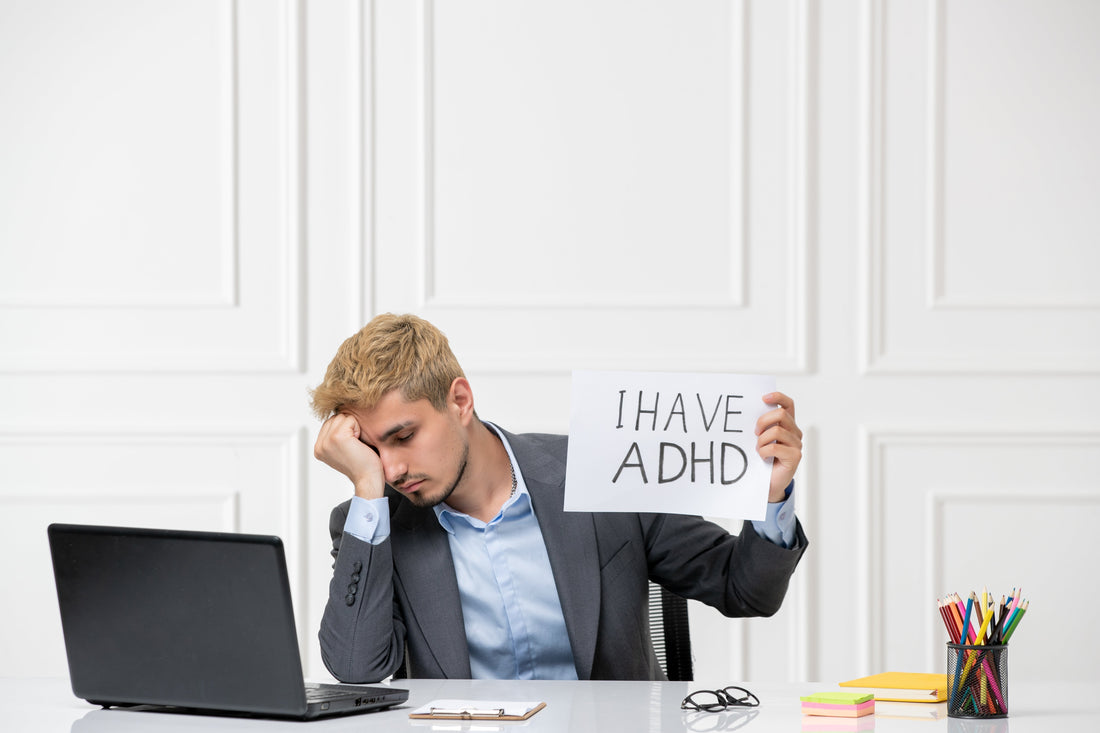
Do I Have ADHD?
Maybe you're constantly distracted, forgetting important tasks, struggling to stay organized, procrastinating, or feeling uninspired. And maybe, during one of those doom-scrolling sessions on social media, you came across a post that made you wonder: Could I have ADHD?
Well, adult ADHD is often misunderstood or completely missed, especially if you were never diagnosed as a child. In this post, instead of repeating what you have already heard, we’ll walk you through the most misunderstood and unacknowledged ADHD symptoms, how to tell if you might have ADHD, and what steps to take next if any of this feels a little too familiar.
Lack of Focus (But Also… Too Much Focus)
It’s a common misconception that adults with ADHD “can’t focus,” but that’s not really true. People with ADHD don’t have a focus deficit, they have interest-based focus. If a task feels boring or unimportant, it's incredibly hard to pay attention. But if something is exciting or meaningful, they can laser-focus on it. This is called hyperfocus.
Take it a step further and you get something called hyperfixation. When someone with ADHD gets obsessed with a topic, project, or idea for days, weeks, or even months. It could be a business idea, a new hobby, a TV show, or even a specific food. But once the novelty fades, the interest drops off fast, and more often than not, the project is left unfinished. If you tend to work in intense, impulsive bursts of energy, and then hit long stretches of distraction or burnout, this may be a sign of ADHD.
Dopamine Dysregulation
ADHD isn’t exactly a dopamine deficiency, it’s more like a dopamine regulation issue. Dopamine is the brain chemical that helps us feel motivated to take action. In people with ADHD, dopamine doesn’t show up reliably when it’s needed. That’s one reason procrastination hits so hard.
If you only feel motivated when there’s a deadline, a consequence, or some form of external accountability, you’re not alone. For example:
-
You don’t go to the gym until you’ve signed up for a class you’ll be charged for if you miss.
-
You can’t start a task unless someone is doing it with you.
-
You wait until the last minute because suddenly the pressure “kicks in” and you finally feel a spark of motivation.
This is classic ADHD dopamine behavior. If motivation only appears in crisis, or when someone else is holding you accountable, it could point to ADHD.
Emotional Dysregulation and Sensory Sensitivity
Another often-overlooked symptom of adult ADHD is emotional dysregulation—which basically means your emotions feel louder, more intense, and harder to manage than other people’s. You might find yourself overreacting to small things, feeling easily overwhelmed, or stuck in emotional spirals you can’t shake off. One moment you’re excited and full of ideas, and the next you feel hopeless, irritable, or exhausted for no clear reason.
Along with this, many people with ADHD also experience sensory sensitivity. That might mean certain sounds, smells, fabrics, or lights feel way more irritating or distracting than they do for others. Crowded places, loud environments, or messy spaces can trigger emotional shutdowns or sensory overload. It’s not that you’re being impatient, your brain just processes stimulation differently.
If you’ve ever been told you’re “too emotional” or “overreacting” or if you constantly need to adjust your environment just to feel comfortable, this could be another piece of the ADHD puzzle.
People-Pleasing and Masking
Many adults with ADHD become chronic people-pleasers, not because they’re naturally agreeable, but because they’ve spent years trying to hide the parts of themselves that didn’t “fit in.” If you grew up constantly being told you were too loud, too forgetful, too disorganized, or “not living up to your potential,” you may have learned to overcompensate by being helpful, agreeable, or overly accommodating just to avoid criticism or conflict.
This leads into something called masking. Masking is when you consciously or unconsciously hide your real self to appear more “normal” or socially acceptable. You may push yourself to stay quiet when your mind is racing, act calm when you're overwhelmed, or say yes to things even when you’re completely burnt out, just to avoid disappointing others. Over time, masking can leave you feeling disconnected from who you really are, and constantly exhausted from performing.
If you're someone who always puts others first, avoids conflict at all costs, or feels like you're constantly pretending to be someone you’re not—, his might not just be a personality quirk. It could be ADHD, especially the kind that flies under the radar.
What to Do Next
If what you’ve read here sounds familiar, the next best step is to speak with a licensed professional for a proper ADHD diagnosis. Self-awareness is powerful, but an expert can help you confirm what’s really going on and guide you through treatment options that are right for you.
That said, understanding yourself is just as important as any diagnosis, and that’s where real transformation begins. If you want to go deeper, learn how your ADHD brain actually works, and start turning it from a daily inconvenience into a genuine superpower, I created something for you.
My 14-Day Master Your ADHD course is self-paced, easy to follow, and designed specifically for ADHD brains. Each day includes short, engaging videos, practical tips, and simple exercises to help you manage your focus, emotions, motivation, and routines in a way that finally makes sense for you.
Whether you’ve been diagnosed or you’re still figuring things out, this course will give you the tools and confidence to stop fighting your brain—and start working with it.
